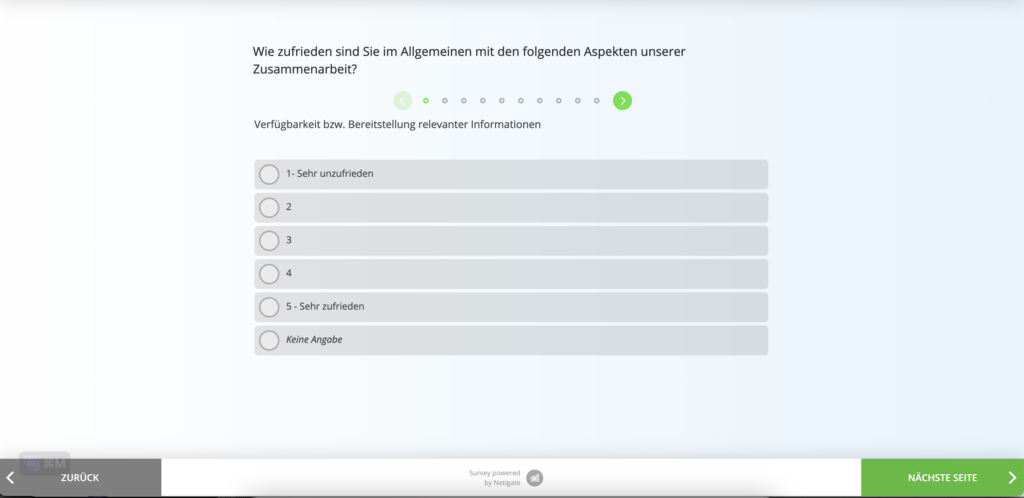A supplier survey is not the same as a supplier self-assessment. Although both can naturally be conducted through the same survey tool, where do the exact differences lie?
In simplified terms: A supplier self-assessment deals with the “formalities” of the business relationship with your suppliers and the adherence to legal and company-specific compliance rules. This means: You inquire about certifications, processes, and other facts that you need for your documentation, such as for the Supply Chain Act.
On the other hand, a supplier survey focuses much more on the quality of your relationships with your suppliers, making it an important tool in medium- to long-term supplier management.
Supplier Self-Assessment: The source of information about your suppliers
In contrast, a supplier self-assessment is a questionnaire that the supplier fills out themselves to provide information about their company, services, certifications, references, and other relevant details. Self-assessment is often used as an initial evaluation of new suppliers before a more detailed survey takes place.
The Advantages of Supplier Self-Assessment:
- Efficiency: Self-assessment saves time and resources as suppliers provide information independently.
- Initial Assessment: Companies can quickly and easily obtain initial information about potential suppliers through self-assessment.
- Comparability: Standardised self-assessments enable better comparison between different suppliers.
- Easy Integration: Self-assessment can be easily integrated into the onboarding process of new suppliers.
Supplier Survey: This is about the quality of the relationship
A supplier survey involves conducting a questionnaire in which you ask targeted questions to your suppliers, gathering information about various aspects of your collaboration. This approach provides companies with the opportunity to objectively assess their suppliers’ performance and gain insights into critical areas such as quality, delivery times, responsiveness, and compliance with agreements. Additionally, you receive numerous insights for activities aimed at further developing your mutual supplier relationship.
The Advantages of Supplier Surveys:
- Transparency and Control: Companies maintain control over the questions and the evaluation of the received data, ensuring a high level of transparency.
- Comprehensive Assessment: A structured survey allows for a comprehensive evaluation of supplier performance, covering various aspects of collaboration.
- Risk Management: Potential risks and areas for improvement can be identified early through direct supplier questioning.
- Relationship Building: Regular surveys foster the development of a trusting collaboration between companies and suppliers.

Screenshot of Netigate Supplier Survey
Supplier Survey or Supplier Self-Assessment: Which fits your needs better?
Both survey types – supplier surveys and supplier self-assessments – have their own validity. Many companies use both survey types in their supply chain management for various questioning purposes.
Ideally, both questionnaires find their place within a “feedback journey” for suppliers. This journey sets the frequency and schedule for sending out surveys. Within this schedule for your supplier surveys, you can also determine the frequency and timing of your supplier surveys or self-assessments.
It’s clear that for both survey types, you can utilise our professional feedback tool, Netigate. Also, make use of our prepared templates for supplier self-assessment and supplier surveys to get started quickly. We’d be happy to provide guidance in a personal demo!








 Copyright © 2024 Netigate AB, Drottninggatan 25, 111 51, Stockholm, Sverige
Copyright © 2024 Netigate AB, Drottninggatan 25, 111 51, Stockholm, Sverige 